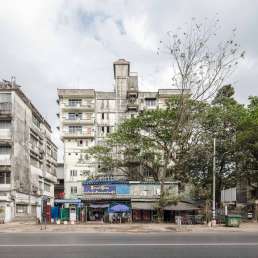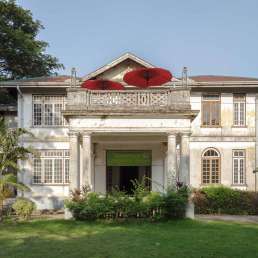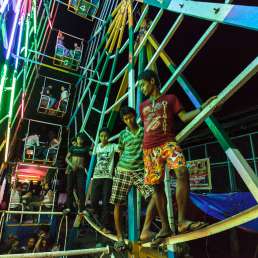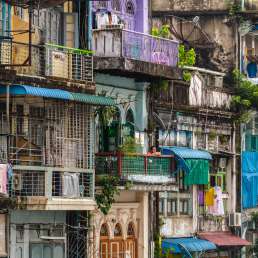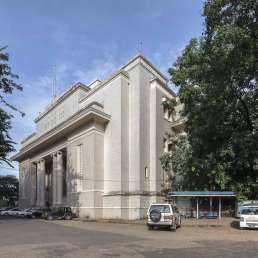Formerly: Traders Hotel
Address: 223 Sule Pagoda Road
Year built: 1996
Architect: RSP Architects and Planners Co. Ltd and Kanko Kikaku Sekkeisha
To many Yangon residents this hotel will remain the Traders for some time, although the new name is slowly taking hold. (If cab drivers don’t recognise one name, try the other.) Japanese firm KKS drew the designs together with Singapore-based RSP. RSP stands for none other than Raglan Squire & Partners. The British architect left his mark on Yangon in the 1950s and set up an office in Singapore thereafter. (See the Technical High School and the University of Medicine-1 for his two works.)
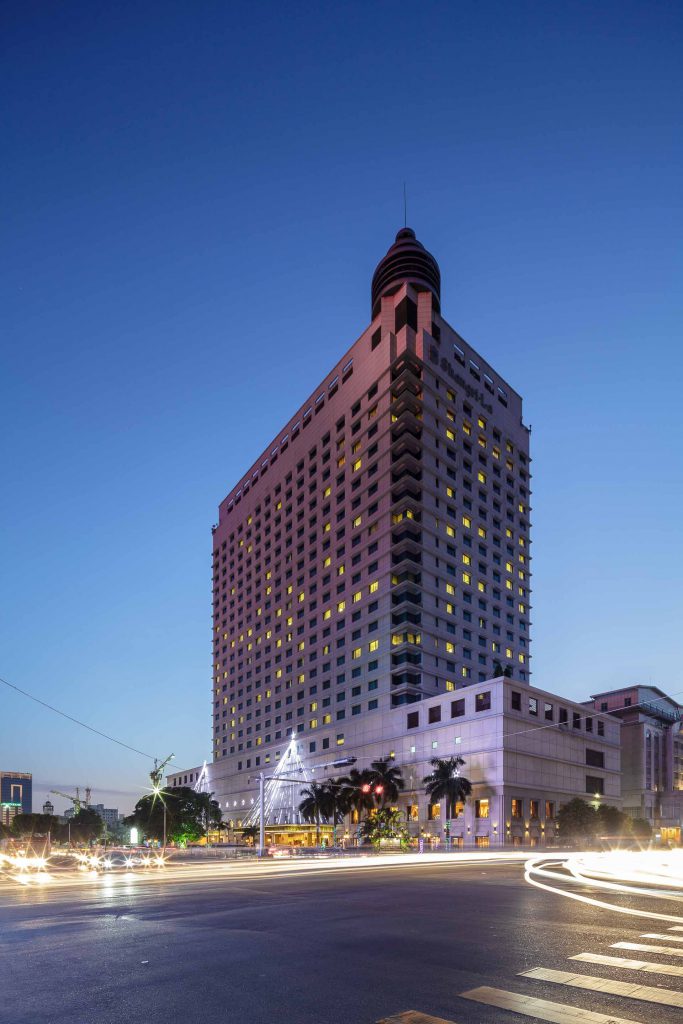
One wonders what Mr Squire would think of the Traders: a nondescript tower block with many lookalikes across Asia. Thankfully, its slender width reduces the building’s visual impact on the skyline when seen from the south. The large, round tower on the corner of Bogyoke Road only serves a decorative purpose. The Traders’ four-storey base is almost windowless, making the building somewhat ominous from up close. The hotel has almost 500 rooms and a large selection of meeting and function rooms. These are named after the country’s former kingdoms.
The Traders was part of the junta’s plan to transform the country into a tourist destination. As the international community began to boycott Myanmar, however, the Traders was very quiet indeed. The fallout of the Asian financial crisis in 1997 also took its toll. Rooms sold at a fraction of today’s soaring rates and, ironically, UN agencies and NGOs were able to set up offices there as a consequence. Guests getting off on the wrong floor would find armed soldiers in blue berets. (The sight of busy humanitarian aid offices with thick carpet and en-suite bathrooms was also unusual.)
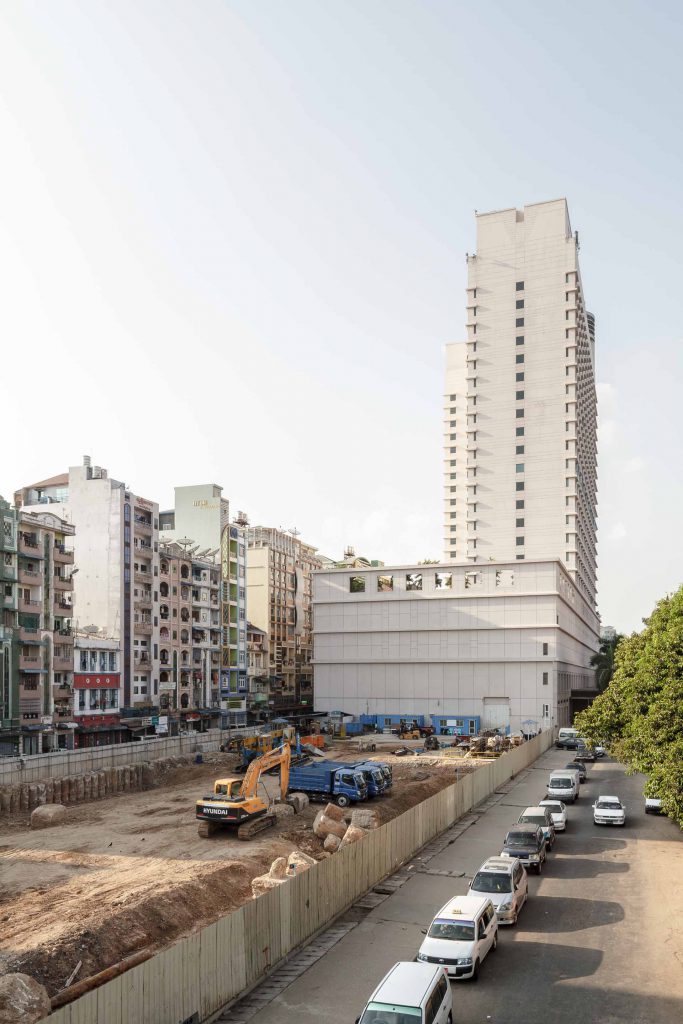
The hotel stands on what was once “Cinema Row”. Two theatres from the colonial days, the Palladium and the Globe, were torn down to make way for the building. (Cinema enthusiasts should stroll one minute away to admire the still-standing Waziya from that period.) An Armenian cemetery also stood nearby. It was moved to make way for a park, which is now the construction site for Sule Square, a planned 20-storey office complex. The tower will mimic its neighbour with a base similar in height. It will house retail space and overground car parking. One can only hope that this project will provide an occasion to improve pedestrian accessibility of the pavement on Sule Pagoda Road.
The Traders was a joint venture between Kuok Singapore Limited and the notorious Lo Hsing Han, a man widely accused in the West of masterminding Burma’s opium trafficking networks. He passed away in 2013. His son Steven Law leads their conglomerate which includes hotels, supermarkets, sea ports and Mandalay Beer.
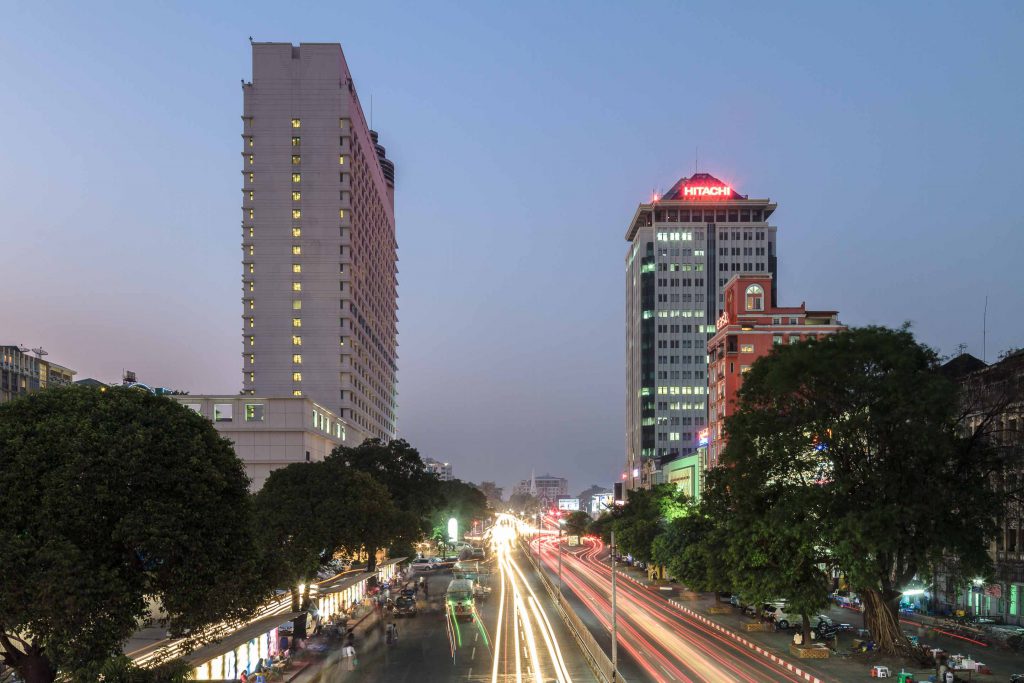
The Traders lobby is the most common professional meeting place in the city, especially for expats. Business people, UN officials and journalists eye each other knowingly as they slalom past tourists in the large atrium.
In October 2013 a bomb exploded on the ninth floor, in the lead-up to Myanmar hosting its first Southeast Asian Games (often referred to as the SEA Games) in 44 years. The attack injured an American tourist. Several more bombs detonated throughout the country. One month later, authorities arrested three men from Rakhine State. Their reported aim was to target mosques and Western venues.
